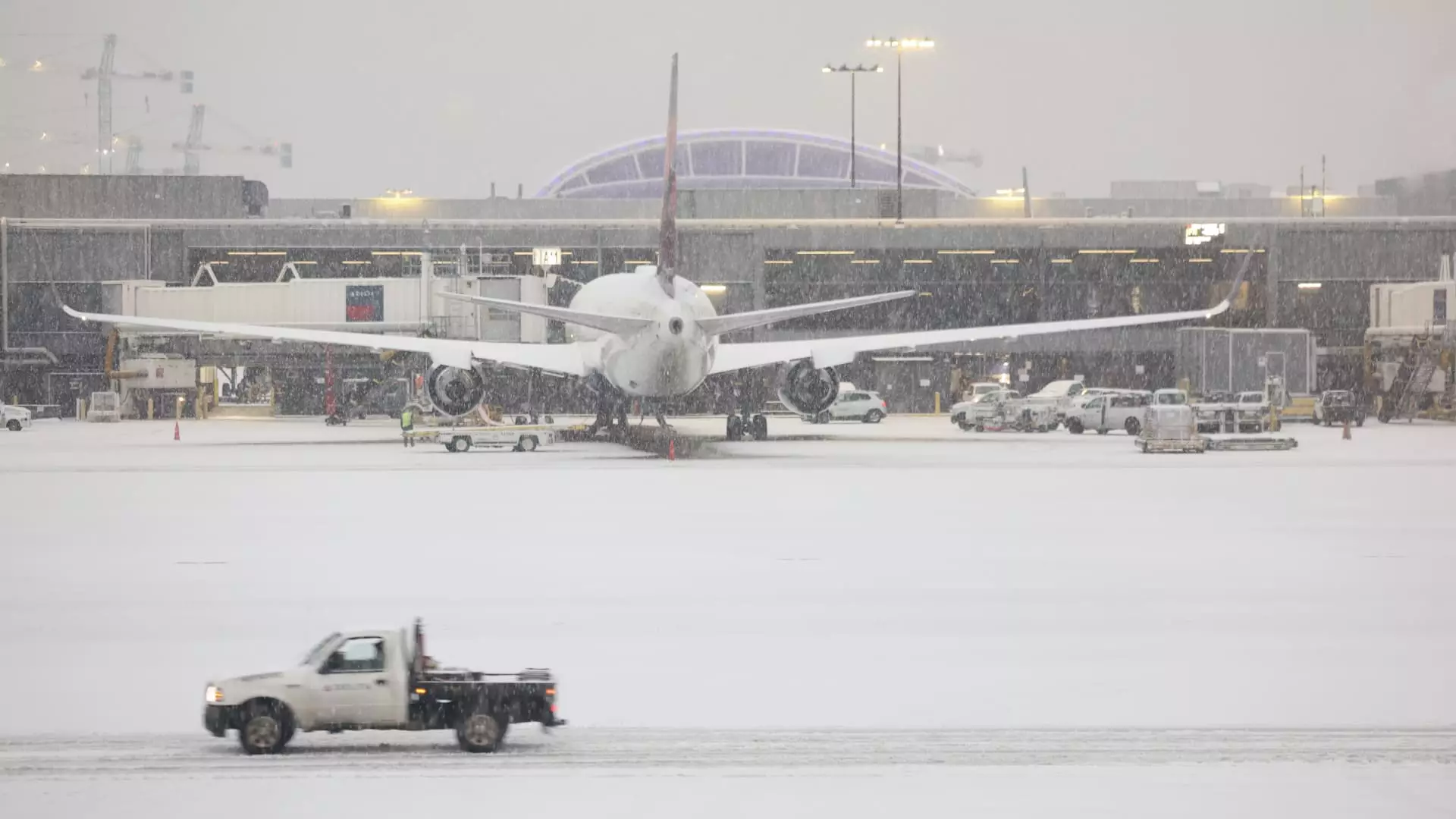A powerful winter storm wreaked havoc on travel plans across the Southern United States, resulting in the cancellation of over 2,000 flights last Friday. With airports grappling with icy conditions and heavy snowfall, the ramifications extended beyond immediate flight cancellations, causing a ripple effect throughout the aviation industry. Flight delays amounted to more than 2,000, leaving thousands of passengers stranded and frustrated. This situation highlights how vulnerable air travel is to severe weather conditions and the domino effect it can create on both airlines and travelers alike.
At the heart of this chaos was Hartsfield-Jackson Atlanta International Airport (ATL), which is known as the world’s busiest airport and a primary hub for Delta Air Lines. On a particularly challenging day, nearly 900 flights to and from Atlanta were scrapped, constituting around 40% of the day’s scheduled traffic. Adding to the crisis was a separate incident involving Delta’s flight 2668, which was forced to abort its takeoff due to an engine malfunction. The situation escalated as 201 passengers and seven crew members were evacuated using emergency slides. Delta Air Lines quickly released a statement reassuring patrons that their safety remained the top priority, acknowledging the unfortunate experiences of passengers affected by the weather and the incident.
While Atlanta served as a significant focal point, the storm’s reach extended to other major airports in the region. Dallas/Fort Worth International Airport (DFW) and Charlotte Douglas International Airport were similarly affected, with more than 1,000 flights canceled. DFW, in particular, faced substantial cancellations a day prior as the storm significantly impacted operations. The weather forced various airlines, including Delta, American, and Southwest, to alleviate some pressure by waiving fees for changes and fare discrepancies, helping travelers adapt to the unforeseen circumstances.
Preparedness and Response to Future Events
This recent disruption calls into question the preparedness of airlines and airports in the face of increasingly severe weather patterns. While airlines have procedures and protocols to manage such crises, the sheer scale of cancellations and delays demonstrates the need for continual improvement in operational response strategies. Moreover, it raises the issue of how well airlines can support customers during travel disruptions, particularly when large swaths of flights are grounded simultaneously.
A Learning Opportunity for Travelers
For passengers, the tumultuous experience also serves as a learning opportunity. They are reminded of the importance of flexibility and awareness when planning travel during winter months known for unpredictable weather. As these events occur with increasing frequency, being prepared with contingency plans, such as checking the status of flights and understanding rebooking policies, can significantly mitigate frustration. Ultimately, the lessons learned during this significant travel disruption may lead to more resilient travel strategies in the evolving landscape of air travel.

